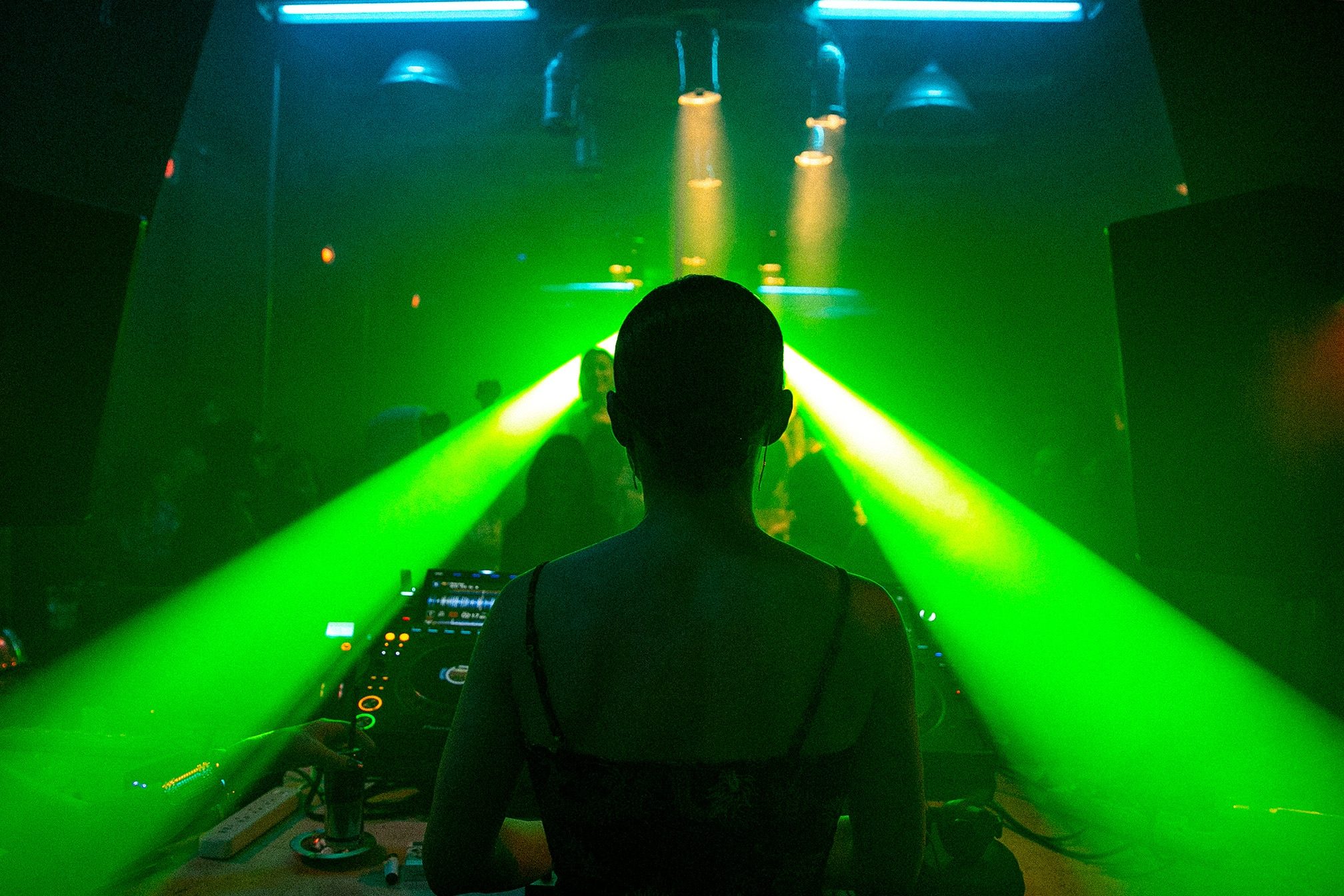 Features
Features
SheSpace Tbilisi: The women leading the way in Georgia’s nightlife
SheSpace Tbilisi is a new film by Carmel Köster & Mariana Berezovska, highlighting the work of women who are carving out much-needed spaces for freedom and expression within the music and nightlife industries in Georgia's capital city
“It’s super empowering to see a woman who just does whatever she pleases. And that is the number one thing you should do,” says Gvantsa Uturashvili, co-founder of Diaci, a podcast dedicated to spotlighting women in the music industry in Georgia. "Here, females are raised as a side character. We are not raised as the main character. And when it comes to alternative music, it’s a main character kind of music — you express the way you feel, you express your anger. But when you don’t feel like the main character you don’t know where you stand.” Salome Vardanashvili, another co-founder of Diaci, adds: “Boy bands have a very good support system. They have their brotherhood. But there was no such support system as sisterhood for us.”
"That's what being a woman in Georgia means — you have to be tough," initiates Anano Chikhladze, a co-founder of the Traphouse party series which represents trap music and culture alongside Anna Samsonidze, in another conversation. "You have to protect yourself," adds Anna Samsonidze, recounting an incident where they almost got beaten up while filming a promotional video for Traphouse in a Tbilisi public housing district. “I heard about myself that I’m a pimp," she laughs and emphasises, “It's very important for us to do [Traphouse], although we might not always have the motivation due to what the people around us tell us. Nice criticism is acceptable, but you don't have to listen to everyone’s opinion. You have to do your job.”
These reflections arose from dialogues with various female-led collectives and key figures in Tbilisi’s music scene during the two-day event 'SheSpace Tbilisi’. This initiative, combining a Traphouse party with pole-dance performances, workshops on communication, DJing, dance and female sensuality, emerged from a shared mission of the Traphouse founders and the Diaci community to empower women in Georgia. Despite differences in visual language and music taste, both crews recognized the importance of knowledge and experience sharing, which was a significant focus of SheSpace Tbilisi.
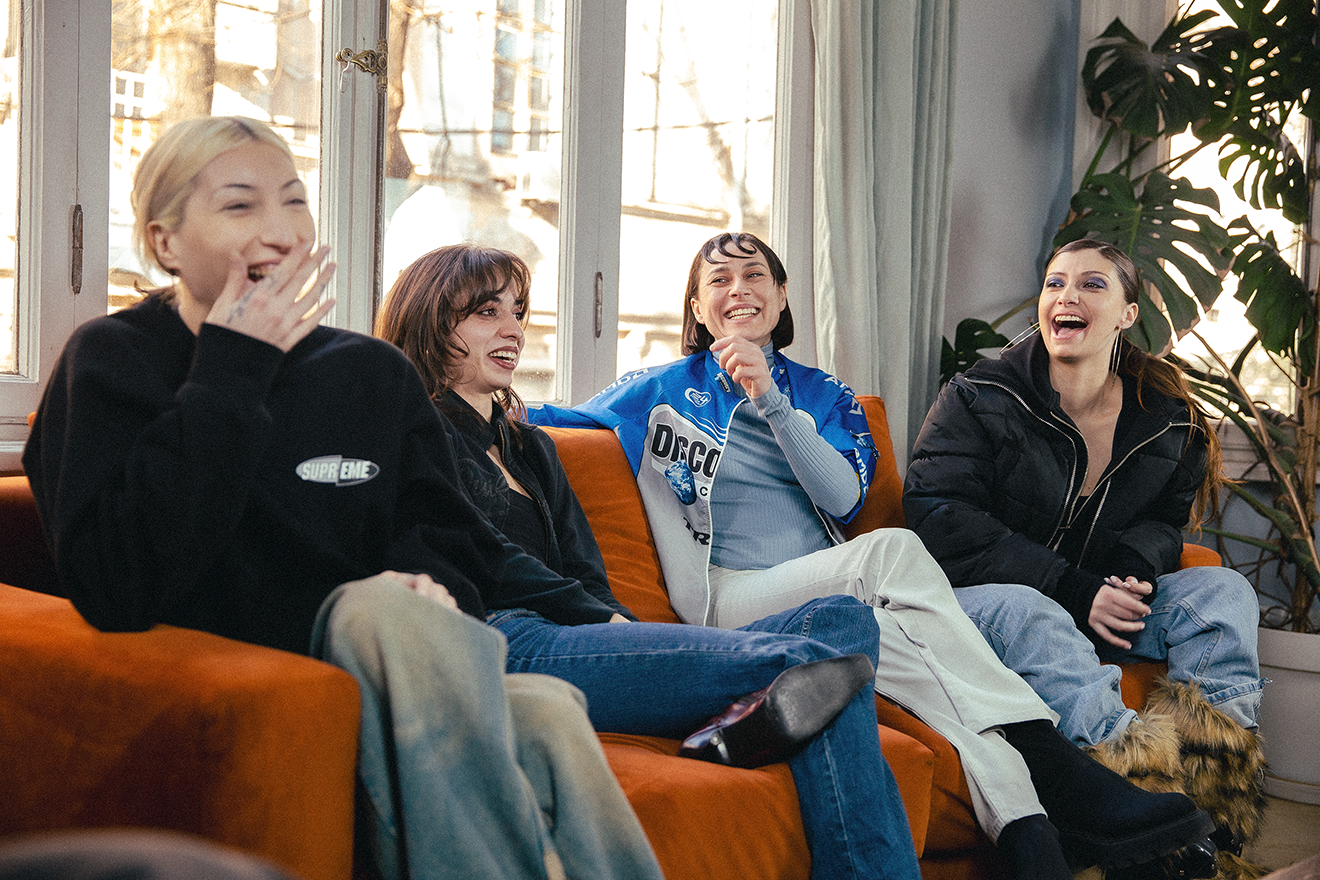
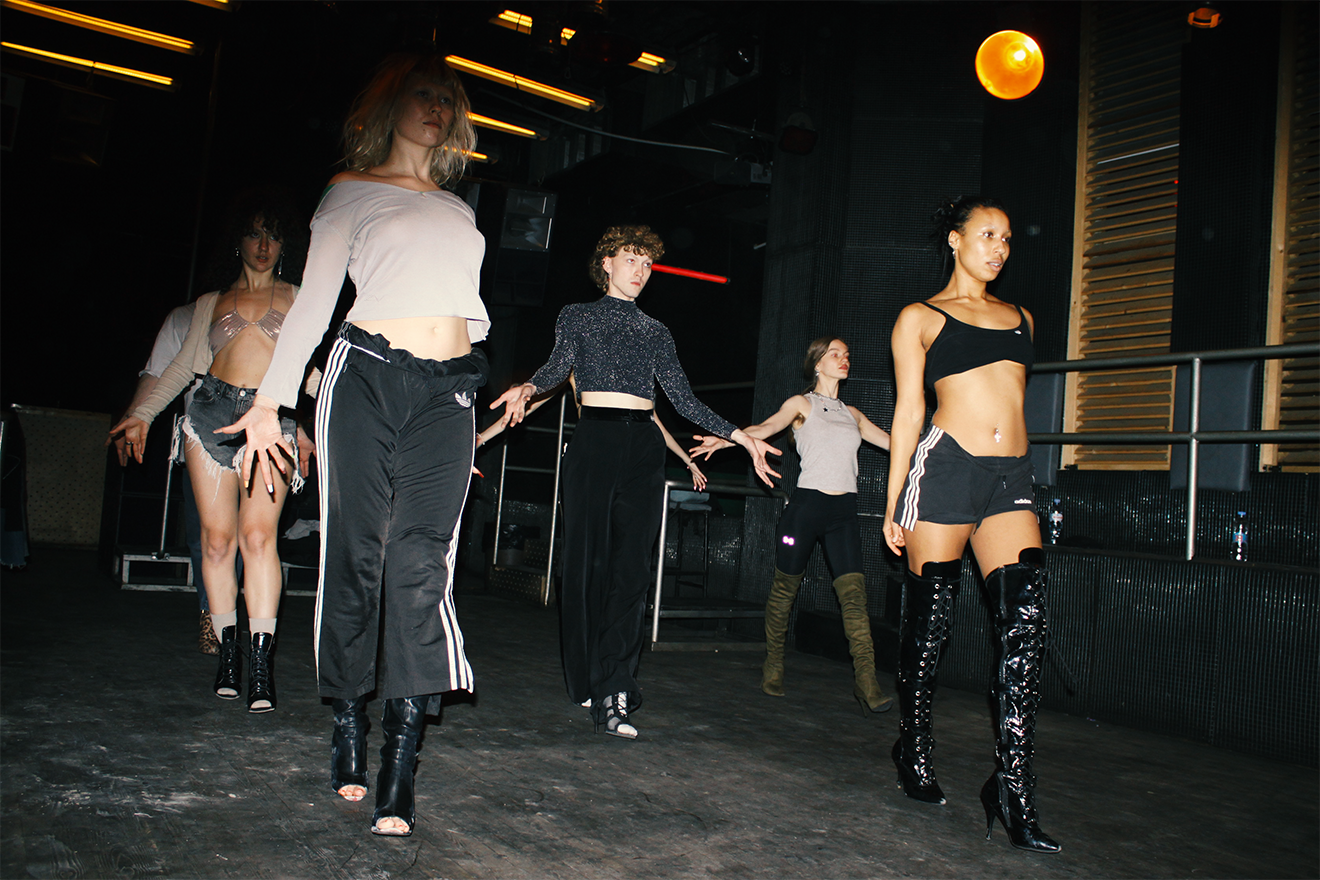
“If you are curious about something, just get up and do it! You don’t have to wait for a saviour,“ asserts Gvantsa Uturashvili, who, along with fellow Diaci co-founders Salome Otarashvili, Salome Vardanashvili, and Martha Geliashvili, produced 22 episodes about women in music, stepping into podcast production in 2022 without prior experience. Inspired by her words, Berlin-based producers Mariana Berezovska, Carmel Köster and Shaun Bass set out to film a documentary, bringing together numerous female artists and cultural workers from across the city — a testament to the women who've carved out spaces of freedom and expression in an area that has traditionally been anything but.
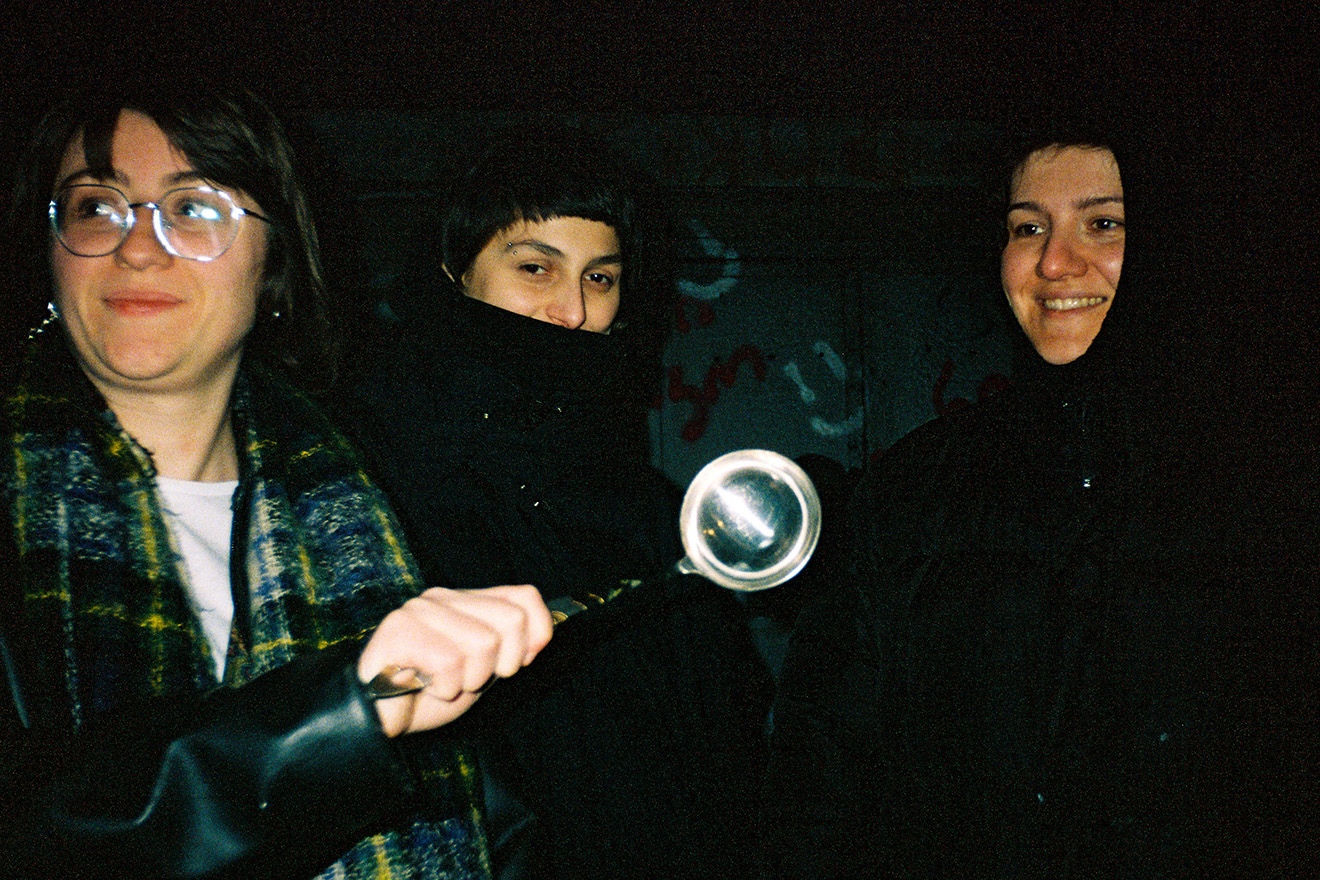
It all began with a thong, a gun, and a trap beat. Seeking a fresh perspective on Tbilisi’s nightlife, which has become a popular destination for the techno crowd, often labelled with the somewhat clichéd term ‘rave-volution’, Carmel Köster, Shaun Bass and I (Mariana Berezovska) stumbled upon a promo image on TES club's Instagram — a group of badass women atop a truck against the gritty backdrop of a rusty bridge. Further videos showcased women pole dancing in the dimly lit club, all set to the unmistakable rhythm of trap beats—a stark contrast to Tbilisi's usual techno-dominated aesthetic. The promo artwork raised questions: Is this really happening in Tbilisi? And if yes, how dare they?
When we connected with Anano, co-founder of Traphouse and soon-to-be a mother of three, she shared the story behind their party series and her long-standing relationship with trap music and strip club culture while living in New York for eight years—a place where pole dancing is more readily recognised as a valid job for women, providing both income and esteem. And it’s always paired with music. This experience inspired her to introduce this format to Georgia. The motivation partly stemmed from the bullying she faced in New York from the Georgian diaspora upon discovering she worked in a strip club. When Anano returned to Tbilisi, it was time to challenge the old stigmas imposed by the church and patriarchy, and to reclaim what belongs to women: agency over their own bodies.
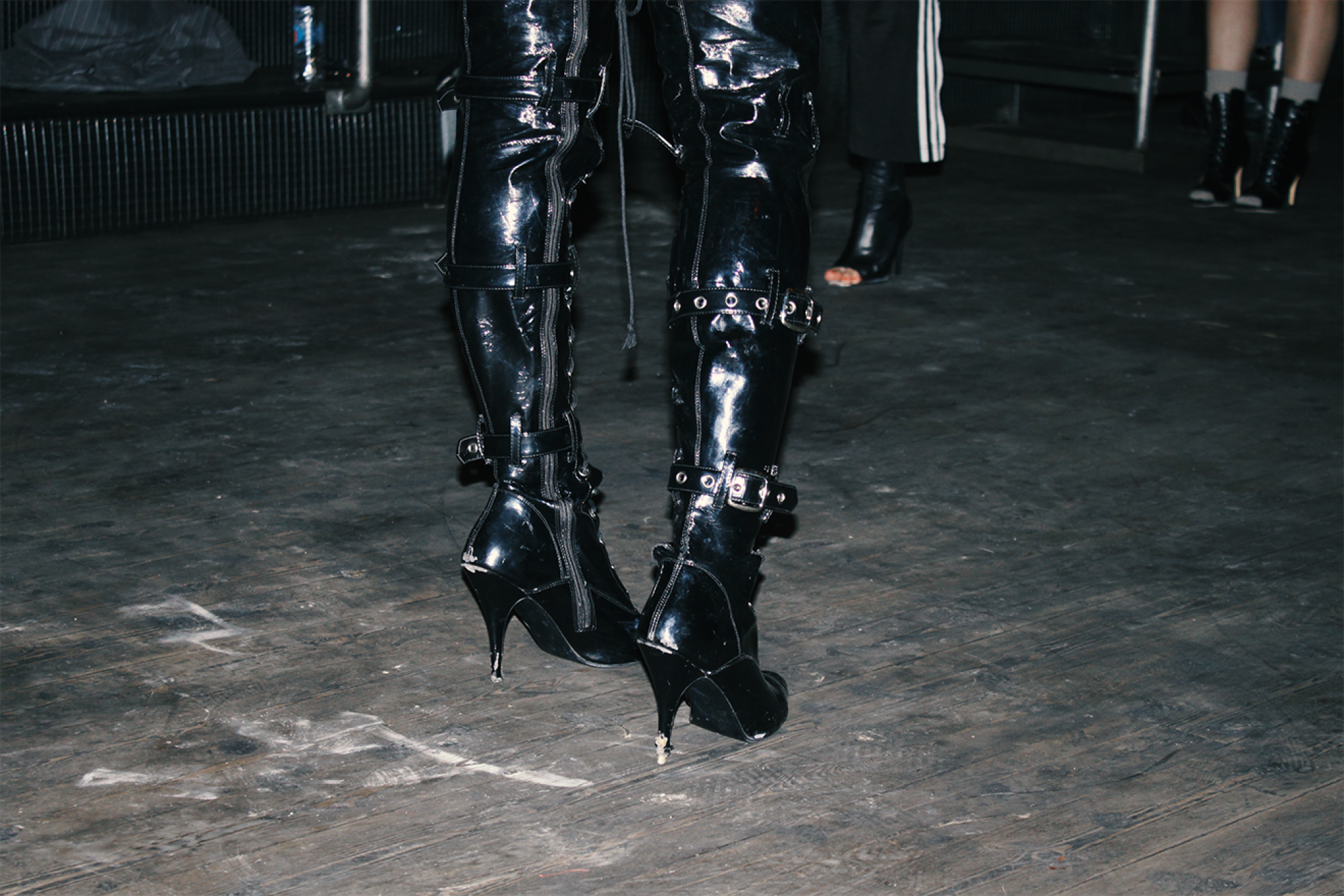
Initially starting in the techno scene under the Eva Iver alias at KHIDI club, she teamed up with Anna, the club's long-time manager. Together, they launched nights that combined trap music with pole dancing, two historically linked elements, celebrating women's empowerment rather than objectification. Anano, under her other moniker Angel of Darkness, was one of the first female DJs adept at mixing pure trap. Within a year, they built a whole community of trap DJs and feminists around their unapologetic mindset. You can take the girl out of a strip club, but you can't take the girl gang mentality out of the girl. Their ‘gang’ now is their group behind the decks and on poles, with women celebrating their bold, physically and mentally strong, loud, sexual, and expressive nature—free from the confines of the male gaze.
The life of young people in Georgia is shaped by its position at the crossroads of the East and the West, ancient history and unique architecture, diverse nature and food, a defiant spirit against aggressive neighbouring Russia, steadfast Christian values and national pride, stoic women, hustling men, stray cats and dogs, heavy-bearded Orthodox priests, and pervasive creativity manifesting in various forms—from the diverse music scene to the ingenious use of tape to fix anything broken. In recent years, the global community learned about police raids and the hostility of priests and their followers towards Pride demonstrations and the Georgian LGBTQI+ community. The Orthodox Church, cemented in patriarchy, often plays a role in the demonisation of empowered women, reflecting broader societal conflicts over gender and power.
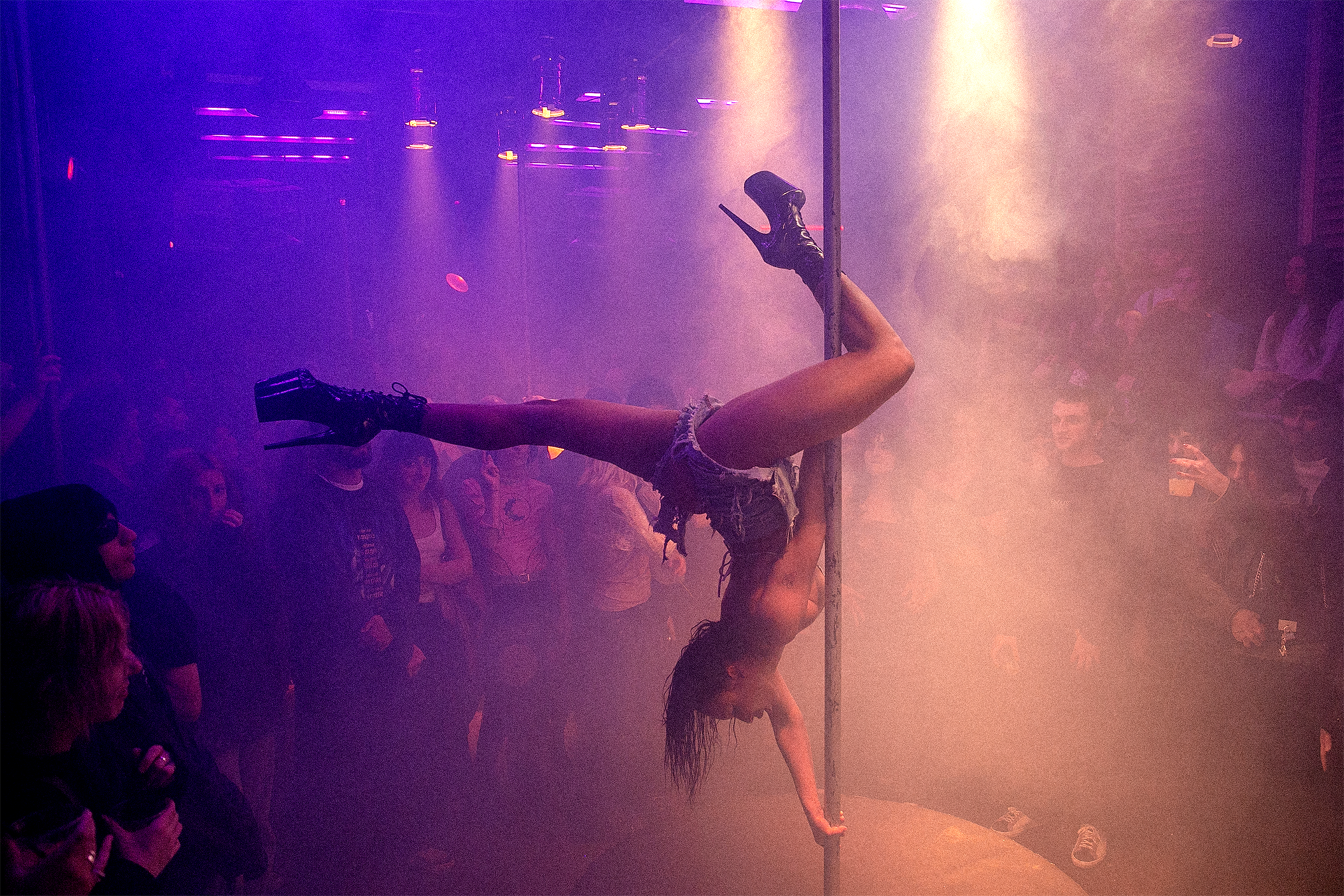
“They were calling us ‘Devil’s whores’,” laugh Anna and Anano when joined by Traphouse DJs Natashaforeverr and Eklektra Ferrara, recounting the harassment they faced while filming the SheSpace Tbilisi trailer, close to a newly constructed male monastery. Eklektra, a Traphouse resident and graphic artist, reflects on the broader societal issue: “There's a problem with seduction in this country,” she says, alluding to repressive and traditional religious views, which often restrict this expression of female autonomy. “But it’s so amazing to have this power, when you feel yourself, put yourself out there, and feel sexy. I am so proud to be a part of this series!” she exclaims “And it’s so empowering that two women did it!” Let’s not forget the essence of seduction is not just sexuality. Seduction embodies confidence and inner strength, and the readiness to claim what you want and have no doubt that you deserve it. Seduction is not only about showing a naked body but about asserting control and agency over it—a bold stance in the face of a patriarchal culture.
In preparations for SheSpace, discovering that many of Tbilisi's clubs are founded and led by women was eye-opening. Recommendations started pouring in: “You must speak with Keta, who runs Mtkvarze, with Naja, the founder of Bassiani, and with Tamar, who owns KHIDI. Have you talked with Nia at Success Bar? And don’t forget the icon sTia, the founder of CES. Oh, and you must meet Tata and Nina of Mutant Radio!” Our trip between interviews with legends who run all these places turned into a quest of “No sleep! Taxi, club, another club, another club, a bottle of Borjomi, next place.”
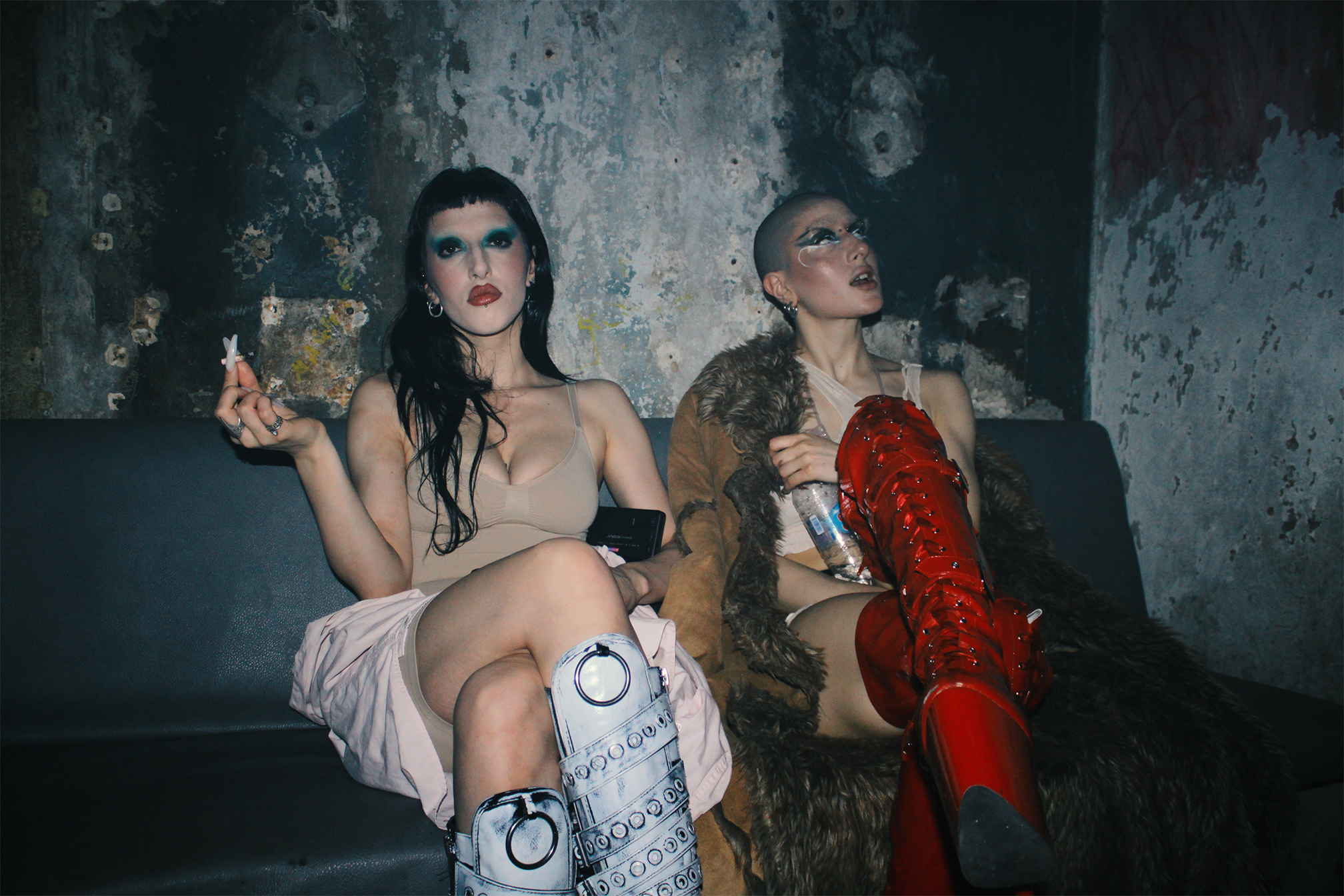
"Women saved this country," begins Keta Gabunia, who co-founded Mtkvarze in 2012, establishing Georgia's first club after the Russo-Georgian war—a home for diverse parties, screenings, social initiative, and the Drag Ball—rising from nearly four decades of turmoil: the aftermath of the civil war (1989-1993), the hardcore nineties, and the Russian invasion in 2008. Keta spoke of women who, faced with no choice, worked abroad or juggled full-time jobs alongside managing their large, often electricity-deprived, households.
Nastia Sartania aka sTia’s office is packed with record boxes, print publications and synths. She is an acclaimed pianist, the Georgian Queen of d’n’b, the founder of Tbilisi’s School of Sound and Design (CES) located in Fabika, and the co-founder of CES Records and Georgian Music Legacy Collection. “Now we have proof of the very first Georgian electronic record which happened to be by a female artist," sTia proudly states, unpacking a sleeve from a box with a fresh press of Natela Svanidze’s first electronic album in Georgia from 1974, produced on the legendary Synthi 100. “How good is that!”
CES Records is a home for iconic Georgian artists like Natalie Beridze and Nikakoi, alongside newcomers like Anushka Chkheidze. Through the Georgian Music Legacy Collection, exclusively released on vinyl, sTia spotlights music from the early '90s to 2005—a challenging time when numerous electronic musicians began their careers, only to see the music industry collapse. Through her work with the label and the music school, Sartania ensures the new generation of Georgians has access to a legacy that's often absent online.
It's not the first time she's been questioned about why so many of Tbilisi's cultural powerhouses are led by women, yet she finds it difficult to provide a straightforward answer. "I don't see people in terms of gender—whether you’re female or male. It’s all about what you desire, your energy, your power, and, most importantly, your love," she reflects. She is convinced that the presence of more women in leadership positions in the music industry encourages others to break out of their shells.
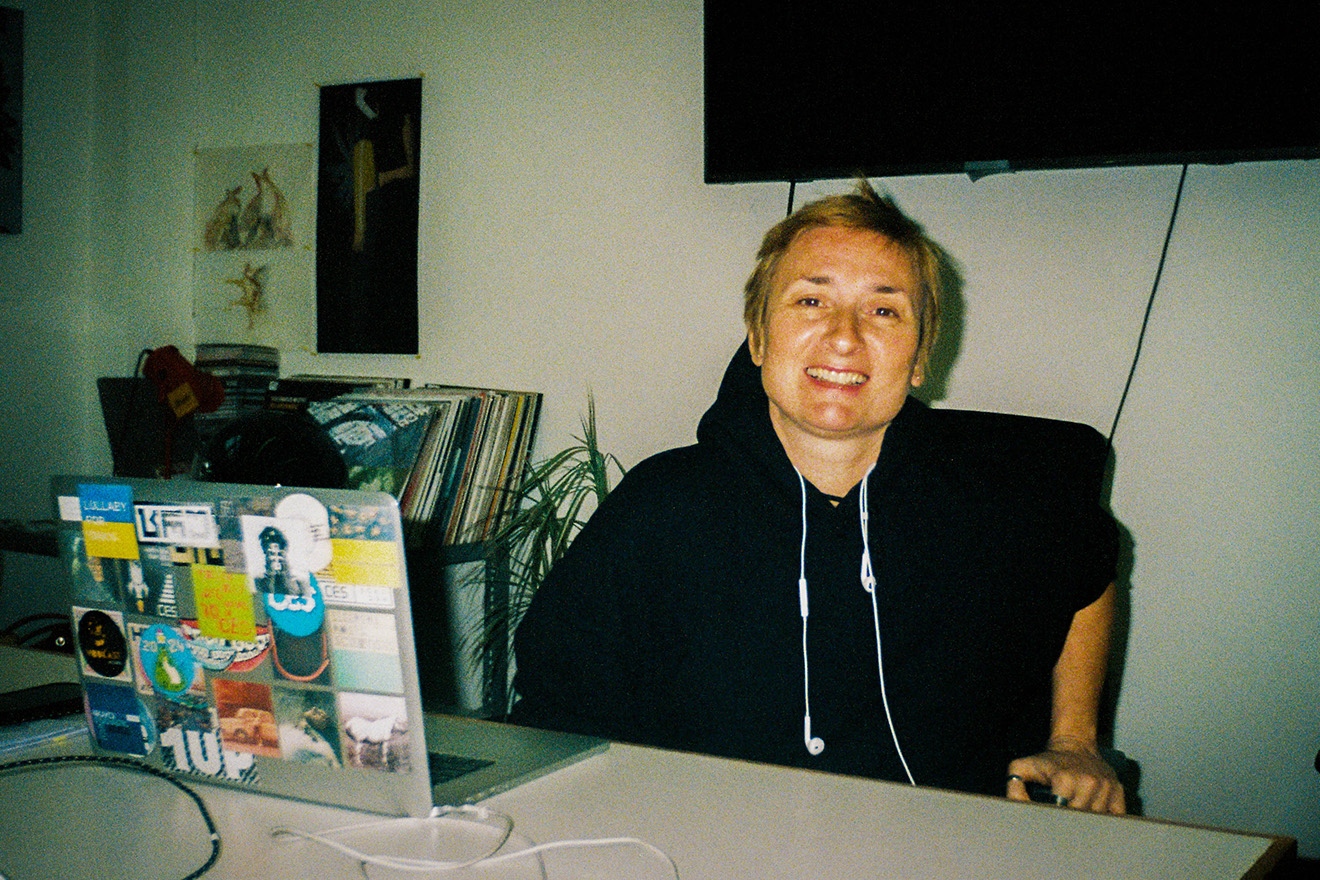
We met Naja Orashvili at Klara bar, another location run by the team in charge of the iconic techno club Bassiani. It’s a cosy space for activism, queer crowds, and immaculate playlists, like the one by Tati Abramishvili playing during our visit. Naja is a key figure of Tbilisi’s 'rave-olution' era, celebrated for her defiant stand in front of the Georgian parliament in 2018. Reflecting on her 27 years in the club scene, the founder of Bassiani shares: "Club culture has shaped my life, teaching me to navigate our patriarchal society. It began in the ’90s, in war-torn dark spaces, where I found shelter and healing.” Naja recalls being one of the few women on the dancefloor. It became her mission to create a platform for women and queer people in a country grappling with femicide and where speaking out remains a challenge. “Clubs are more than entertainment; they're spaces where women can truly find themselves. My mission has been to ensure women and girls access this freedom, envisioning a club scene that echoes my dreams from 25 years ago." Naja believes in a broader cultural shift, but not solely through music and clubs. “It's about taking the fight for freedom from the dancefloor to the light of day, liberating women's bodies and minds."
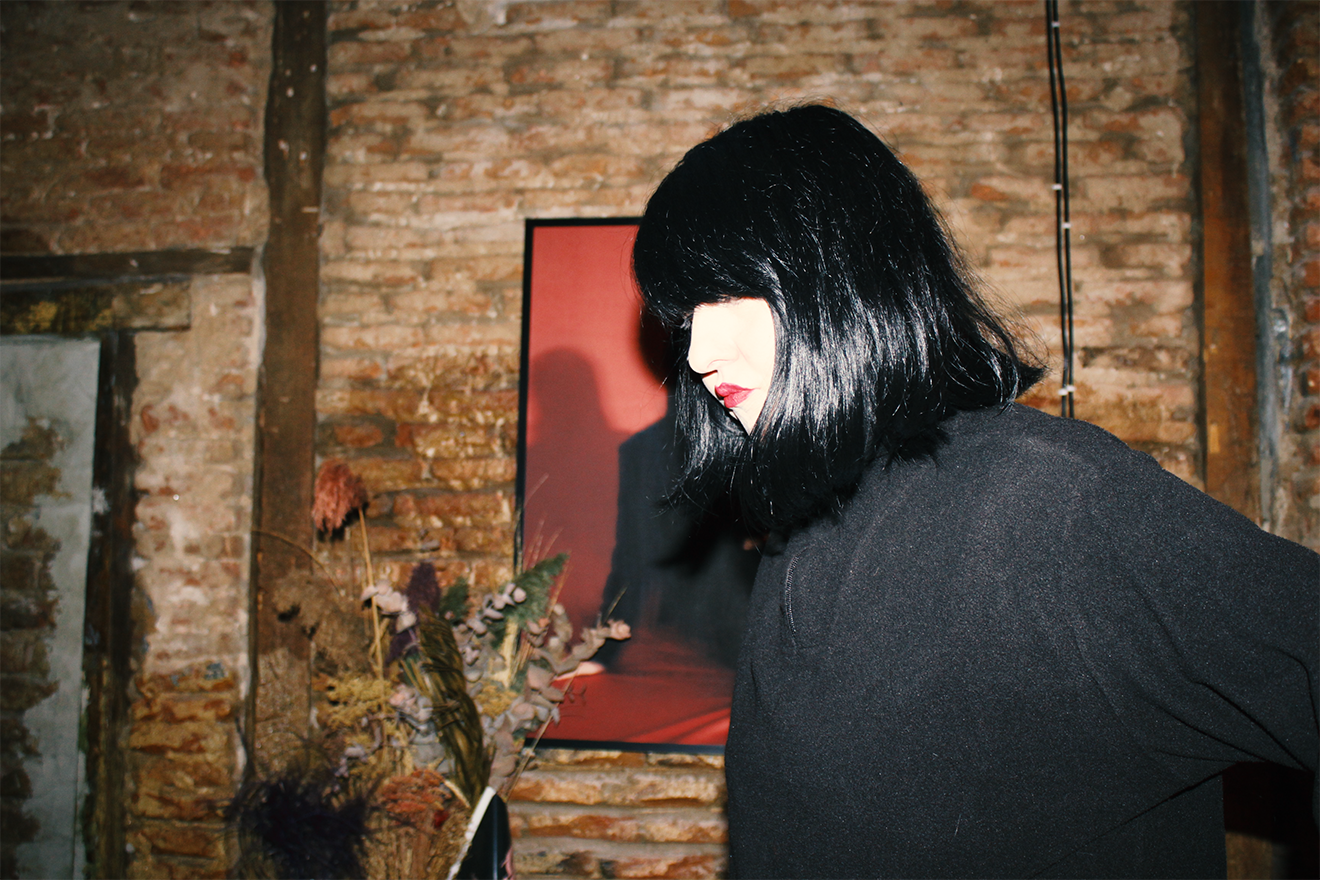
In the small, egalitarian backstage area of KHIDI —a massive club inside the concrete grandeur of a Mtkvari river bridge—Tamar Axander mingles among DJs waiting for their sets. Far from the typical club owner, she makes no haste to reveal she’s the boss here. Her namesake, Tamar the Great, ruled as the Queen of Georgia in the 12th century, overseeing the zenith of the Georgian Golden Age. The Queen of Khidi, whose club journey began at 15, echoes Naja's emphasis on the necessity of safe spaces and security for young women within the club scene.
KHIDI has been a fertile ground for budding talents of all genders, providing a stage for them to grow into professional DJs. The club's female residents, such as Liza Rivs, Neux, and Knaughty, didn't start off with fame but gained confidence and now enjoy international acclaim, thanks largely to their beginnings at KHIDI's decks. Traphouse’s Anano, under her alias Eva Iver, also performs EBM and industrial techno sets, sometimes back-to-back with Tamar herself. Initially, when Anano and Anna launched Traphouse, Tamara was both sceptical and curious, yet ultimately supportive. “In Georgia, strip culture has never been linked with music or the underground club scene. But they've managed to integrate music with pole dancing in their Traphouse nights at Tes, creating what feels like genuine performance art to me,” Tamar concludes with admiration.
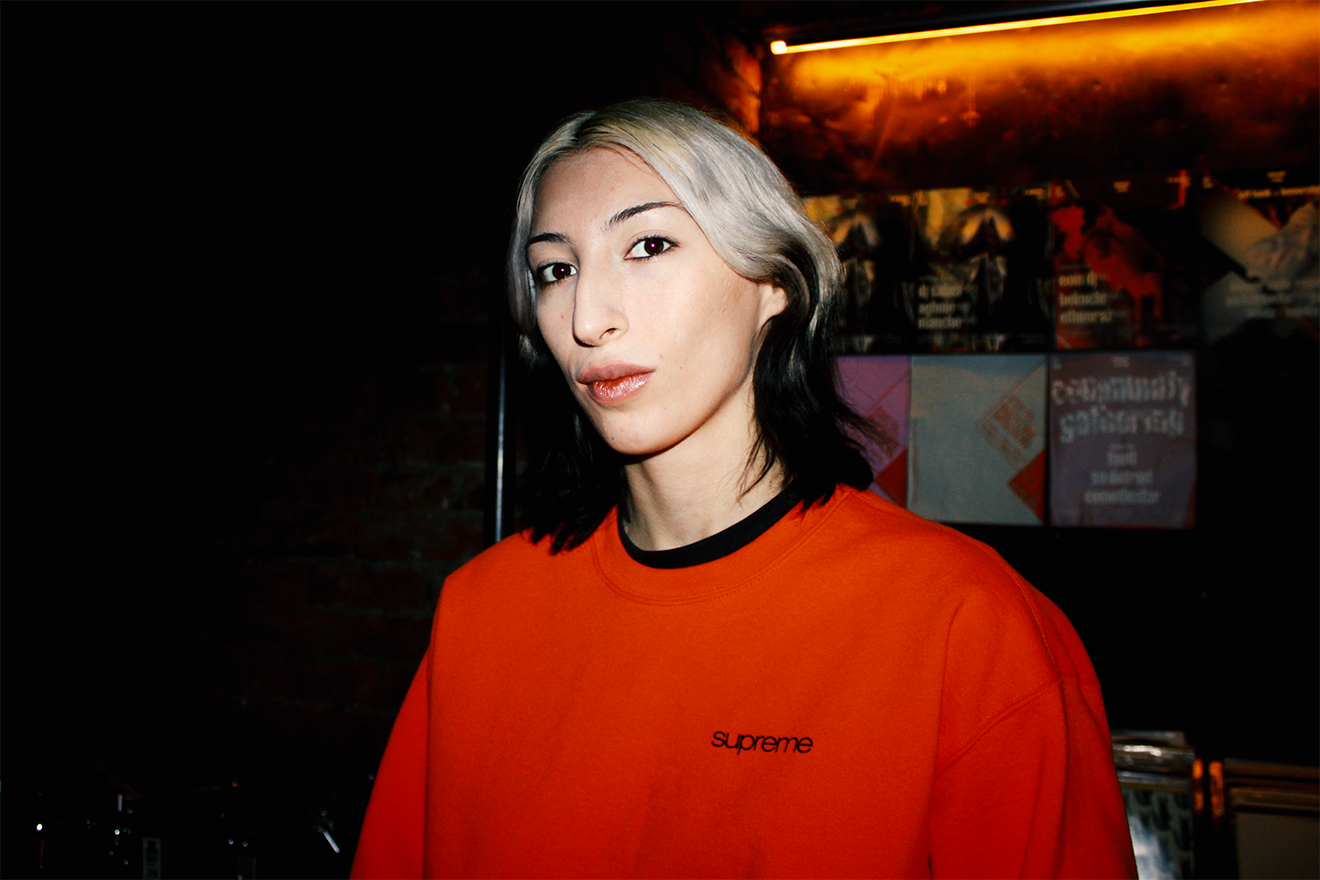
Anna and Anano haven’t just created an amazing party that challenges social stigmas; they've also shifted the perspectives of those closest to them. For example, Natashaforeverr, the crew’s youngest multifaceted talent—a DJ, fashion designer, and bouncer at Left Bank club—has always had a passion for trap music and took up pole-dancing classes without ever imagining performing publicly. However, her involvement with the physical art of pole dancing, coupled with the support of the Traphouse founders, transformed her perception, helping her to feel her power and engage with it. One of the recent Traphouse posters proudly features her performing on a pole.
SheSpace Tbilisi with Traphouse and Diaci — and their friends and allies such as Ani Kvirkvelia aka Aniway, Orbita, KY Cygni & Koko, Maji Claire and Thea Carla Schott, Kvachi aka Knaughty, Mariko Turmann-Mikeladze, Lucrecia aka Luca Bitchikashvil, and Giorgi Kikonishvili among others — have addressed a range of urgent gender-political themes that resonate deeply in Georgia, but apply universally: The emancipation and empowerment of women, agency over their bodies, and the assertion of their rights in a world dominated by patriarchy and the outdated influence of the church.
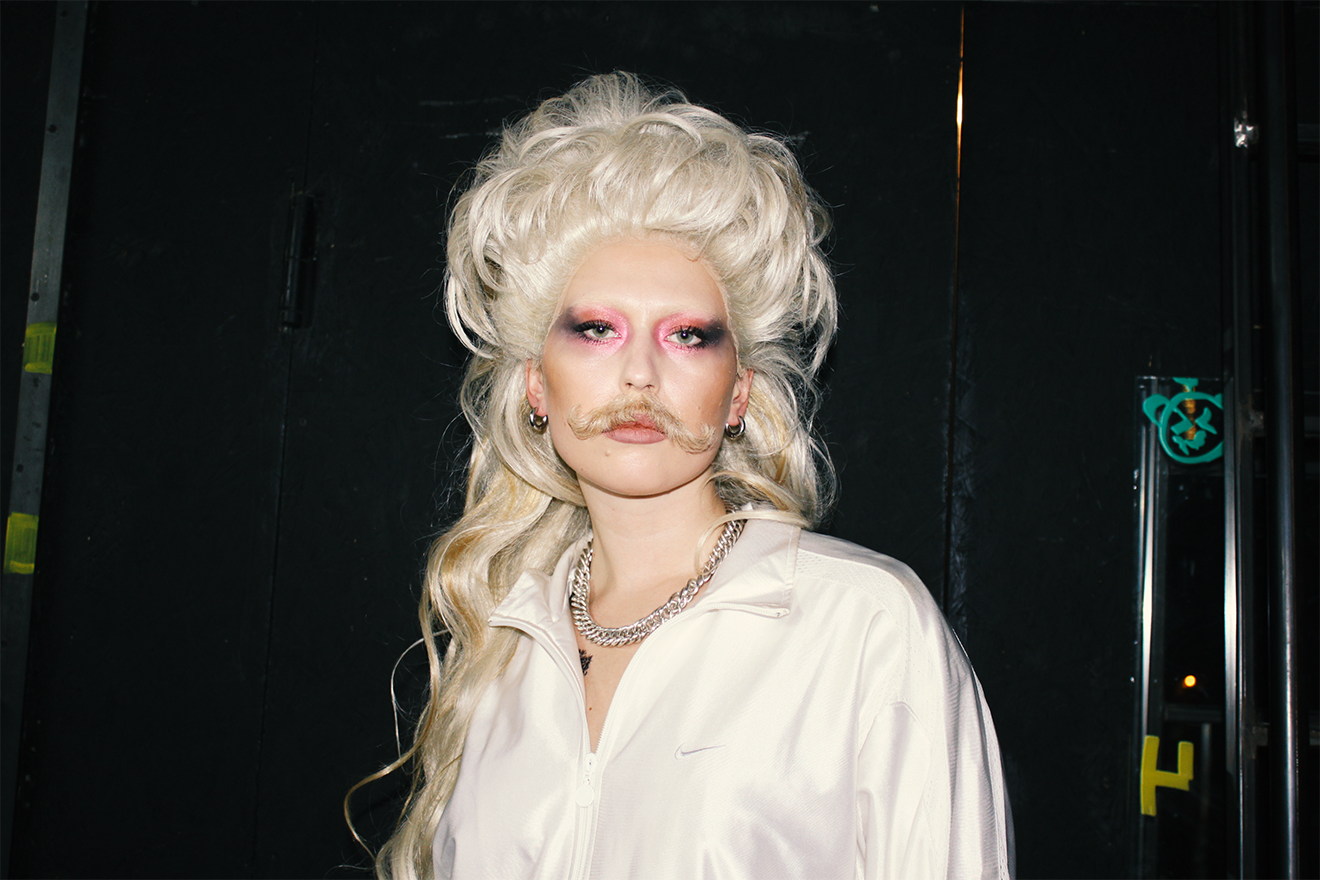
In the rap game, the narrative often presented to fans suggests that only one queen can reign. Figures like Nicki Minaj and Cardi B have been pitted against each other, it often seems like there can only be one leading woman. The truth is that such dynamics are not exclusive to rap. However, the era of information sharing, being vocal about stigmas, and global sisterhood, offers a space where multiple women can thrive and support each other. This is a reminder that it’s time for mutual empowerment and bold steps to reach the change we seek. For some, this means walking one foot at a time; for others, it's wrapping their legs around a pole and spinning fearlessly.
Mariana Berezovka is a Ukrainian Berlin-based writer and editor, and co-creator of the documentary about SheSpace Tbilisi alongside Carmel Köster and Shaun Bass. Follow her on Instagram



